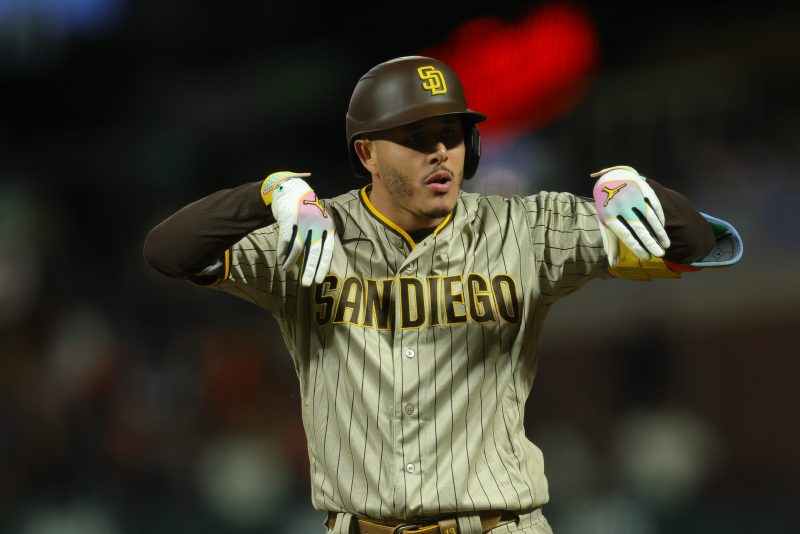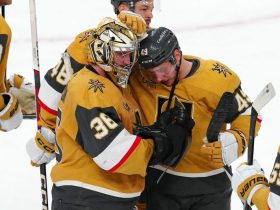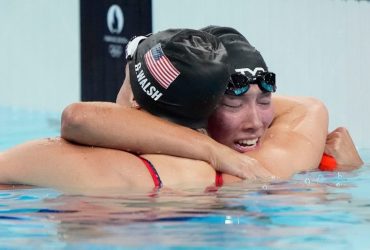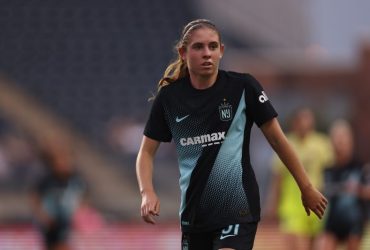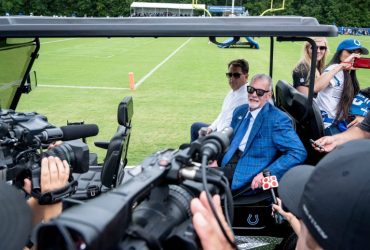PEORIA, Ariz. − The horde of fans that swarmed outside the San Diego Padres’ gates for autographs a year ago have shrunk to about a dozen these days.
The Padres’ clubhouse, packed full of reporters last spring, has been reduced to less than a handful if not for the Japanese and Korean media.
The braggadocio and anticipation of the Padres winning their first World Series championship in franchise history has vanished.
If you want to find all of the fans, the hype and the surreal expectations, you must drive past the Padres’ complex and keep on going another 11 miles.
This is where you’ll find the Los Angeles Dodgers, Shohei Ohtani and company.
HOT STOVE UPDATES: MLB free agency: Ranking and tracking the top players available.
The Padres are old news this spring, a team that had all of the build-up of the Dodgers a year ago, only to underachieve.
They looked ridiculously powerful on paper with their franchise-record $291 million competitive balance tax payroll, only to look dreadfully mediocre the entire season, needing a 14-2 finish just to climb over .500.
“The biggest thing was disappointment because of the people we had in that room,’’ says Padres GM A.J. Preller. “We thought this team was very, very capable of winning a World Series. Even if things went wrong, we felt we should be in a position where we have as much ability as anyone.
“I know guys feel like we’ve left a lot on the table last year.’’
Now, a year later, they’re slashing their payroll by nearly $100 million, trading away their most productive player (Juan Soto), letting their Cy Young winner (Blake Snell) walk away, saying good-bye to their All-Star closer (Josh Hader) and parting with their two-time Gold Glove center fielder (Trent Grisham) as well as three veteran pitchers (Michael Wacha, Seth Lugo and Nick Martinez).
“We believe in the guys that we have,’’ All-Star third baseman Manny Machado says, “[but] obviously no one can replace Soto. He’s the top player in the game. He’s irreplaceable. …
“We lost some big, key pieces. But I think we have the right group of guys out there to go out and compete every single day.’’
The Padres say they still expect to win, but the refrain is dramatically different from a year ago. Instead of talking about their parade route once they win the World Series, they’re talking about survival in the rugged NL West.
“There was a lot of high expectations,’’ Padres first baseman Jake Cronenworth said. “I think we tried to live up to that too much instead of just going out and being that team we were.’’
The only title they earned was being baseball’s biggest enigma.
They had no problem getting on base with walks, ranking seventh in on-base percentage, but failed miserably trying to drive those runners in, with only four teams having a worse (.241) batting average with runners in scoring position.
Their ineptitude hitting in the clutch was reflected by their major-league worst 9-23 record in one run games, and 2-12 in extra-inning games.
“It was insane,’’ Cronenworth said. “I don’t think that could ever happen again.’’
It wasn’t a case of bad luck.
It wasn’t a fluke.
It was just bad fundamental baseball.
“We didn’t do the little things right, like moving runners over, or our approach,’’ Padres co-ace Joe Musgrove told USA TODAY Sports. “You look at our numbers throughout the season with runners in scoring position. We had plenty of opportunities, but we didn’t cash them in.
“That’s why you saw us lose so many close games because we weren’t doing the little things right. We weren’t far off from being a completely different team. We were right there in most of those games. We were just one swing from changing a lot of those games.
“But obviously you can get close as you want, but if you don’t win, what difference does it make?’’
There were underlying factors that also may have played a part in their demise. There were whispers of clubhouse unrest. There was constant strife between manager Bob Melvin and Preller. It finally ended when the Padres permitted Melvin to interview for the San Francisco Giants after the season and didn’t bother to ask for compensation when he was hired.
Now, the job belongs to Mike Shildt, who has been on Melvin’s coaching staff the past two seasons after being fired as the St. Louis Cardinals manager. He plans to preach fundamentals, togetherness, and making sure that the nightmare of a year ago never happens again.
“I can tell you that group wasn’t pleased with the underperformance of what took place and how it went down,’’ Shildt said. “Without getting into greater specifics, I can tell you the group that’s going to help lead this ’24 campaign is coming in hungry. ….
“We’ve had a lot of good discussion with our leadership in the clubhouse and with our leadership in the front office to make sure everybody’s synched up, and going in the right direction and pulling on the same rope. You know, the teams that are more functional and work as one living organism are the ones that ultimately get the most out of what they have.’’
They may not have nearly the talent of a year ago. They have just three outfielders on their 40-man roster while trying to convert prized shortstop prospect Jackson Merrill into an outfielder. They have three uncertainties in the starting rotation. They have a thin bullpen. And a weak bench, too.
Yet, if nothing else, they believe last year taught them a valuable lesson.
“I think we need to do a better job of identifying what our identity is as a team from the get-go of spring training,’’ Musgrove said. “It felt like we had expectations of ourselves as a group and it wasn’t talked openly and out loud enough for everybody to understand what that was. So we found ourselves in a hole early on, and trying to find your identity when your backs are against the wall is a little difficult.
“I think we need to set the tone early on in spring training and figure out what those things are, what the standards are here, and make sure everyone’s on the same page.’’
It’s also essential, management says, for the players to start showing some urgency. They spent virtually the entire season telling everyone that it’s still early, everything will be just fine, and that there’s no reason to panic.
They never had a division lead, were 43-47 at the All-Star break, sat 22 games out of first place entering September, and by the time they closed out the season on a 14-2 run, it was too late.
“You can always say it’s too early, we got time,’’ Cronenworth said, “but we just never got to a point where we turned it around. Obviously, we never played great.’’
It left the Padres in agonizing pain all winter knowing the golden opportunity they had, failing to bring home a parade while beloved owner Peter Seidler was alive.
“I think it was devastating,’’ Machado said. “We could have been a lot better last year and we fell short…Sometimes, you let yourself down. You want to play at the highest level, you want to make it to the World Series, and sometimes it just doesn’t happen. …
“I think a lot of guys are hungry. They’ve been hungry all off-season. We’ve been communicating. It’s definitely going to be different.’’
It was a painful lesson, one they hope to never endure again, but the Padres believe they’ll be better for it.
“We have to understand every game is basically a playoff game,’’ Preller said. “I felt like last year, for the most part, there was a lot of, ‘Hey, we’re going to be all right. We’re going to be Ok. We got a lot of guys with a lot of ability. We’ve got a lot of guys that have been there, done that.’
“Well, it doesn’t work like that, you know. For the group, a lot of our conversation this offseason has been doing the best we can every single day and understand that all 162 games have equal importance. I think it’s going to serve the group well going into this season.’’
Still, as much as the Padres would love to believe that a change in leadership, open communication, clubhouse camaraderie and adjusted approach could change their fate, they must face the harsh, cruel facts. While their talent pool took a hit, their neighbors up north in Los Angeles got a whole lot better with their $1.2 billion shopping spree.
Padres co-ace Yu Darvish, who was promised that his six-year, $108 million contract extension wouldn’t inhibit the Padres from hitting the free agent market again, was hoping to be teammates with Ohtani or Yoshinobu Yamamoto.
“Frankly speaking, it would have been nice if they came here and they were my teammates,’’ Darvish said.
Did he even bother to try recruiting them to the Padres?
“No,’’ he said. “Obviously, we were in a situation we were in as an organization financially, and stuff like that, so we never got to that point.’’
So now he’ll be facing them 65 times in the regular season the next five years.
The Padres still have wiggle room in the budget, Preller says, to add more outfielders and pitchers. The team you see now is not the one that will open the season in South Korea next month. It’s not as if they’re going to bring back Snell or sign Cody Bellinger, but they’ll play the waiting game and hope players like Tommy Pham, Michael Lorenzen or Hyun Jin Ryu could fall into their laps.
“The team that we start camp with,’’ Preller says, “is not the team that we’re going to finish with.’’
The Padres, even with so many questions, still have plenty of star power to be competitive. They are led by Machado, Fernando Tatis Jr. and Xander Bogaerts, along with Darvish and Musgrove to lead the starting rotation. They believe they can create ripples in the NL West without all of the hype and fanfare.
Besides, as Machado points out, they now have an angel looking out for them from the heavens in Seidler, their eternal optimist, who passed away from cancer at the age of 63 in November.
“He’s looking over us now,’’ Machado said. “He wanted us to be great, and preach his dream, which is to bring a championship to the city of San Diego, and continue to make the city great.’’
The dream continues, just without the hype.
Follow Nightengale on X: @Bnightengale

